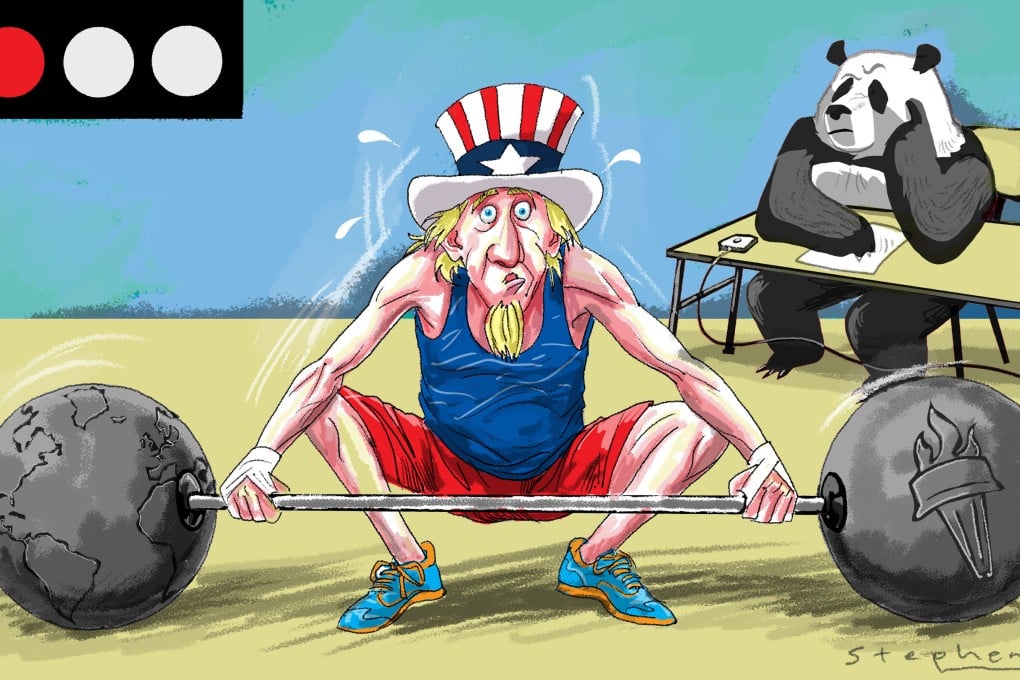Advertisement
Opinion | To counter a rising China, the US must show its powers are not in decline
- Whether a response to a perceived decline in the US or in itself, China’s policies are increasingly aggressive, raising the threat of war
- The US must take Chinese criticism on the nose and strengthen its democracy, society and ties with allies to peacefully show it is still a force to reckon with
Reading Time:4 minutes
Why you can trust SCMP
18

One of the most perplexing aspects of the intensifying US-China rivalry is the absence of key flashpoints or strategic drivers that normally precipitate great-power crises.
Concerns over Germany’s future and the escalating nuclear arms race engendered the Cold War and raised the risk of a hot war that would have destroyed the world. For nearly 40 years, US and Soviet Union military forces would stand eyeball to eyeball in the disputed city of Berlin, armies would face each other along the boundary separating East and West Germany, and both nations engaged in a nuclear arms race.
However, no comparable tensions exist between the United States and China. Beijing retains only a small strategic nuclear capability and, for now, its conventional power poses a regional, but not global, threat. Taiwan has emerged as the biggest potential risk factor; however, the island lacks Berlin’s geostrategic importance: Americans feared its abandonment would convince the West Germans to renounce Nato and declare neutrality in the Cold War.
Advertisement
Why, then, are tensions between China and the US escalating to the point that many debate whether war is inevitable?
Domestic politics offers one answer as political elites use foreign threats to distract attention from problems at home. However, the beliefs and images the US and China hold of each other provide an even more crucial driver of US-China relations.
Advertisement
Advertisement
Select Voice
Choose your listening speed
Get through articles 2x faster
1.25x
250 WPM
Slow
Average
Fast
1.25x

